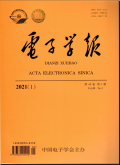电子学报2024,Vol.52Issue(2):468-476,9.DOI:10.12263/DZXB.20220738
基于马尔科夫模型的双站激光微波混合链路性能分析
Performance Analysis of Dual Ground Station Laser-Microwave Hybrid Links Based on Markov Model
摘要
Abstract
Aiming at the system availability problem of free space optical(FSO)link and millimeter wave radio fre-quency(RF)link under various meteorological conditions,multiple ground station diversity and system outage probability performance were investigated by using Markov model steady-state probability equilibrium method.Based on the channel models of FSO link and RF link,hybrid link selection finite state Markov chain(FSMC)was established for single and du-al station scheme respectively.Then their outage probability expressions were derived and calculated under different sys-tem parameters and weather conditions.Numerical results show that at outage probability 10-6,with link distance 1~7 km under rainy and foggy weather conditions,the dual ground station FSO/RF hybrid link can achieve 4~25 dB gain compared to single station case.关键词
FSO/RF混合链路/多站分集/马尔科夫模型/中断概率/误码率Key words
FSO/RF hybrid link/multiple ground station diversity/Markov model/outage probability/bit error rate分类
信息技术与安全科学引用本文复制引用
邵军虎,杜旭晓,庞健,史魏征..基于马尔科夫模型的双站激光微波混合链路性能分析[J].电子学报,2024,52(2):468-476,9.基金项目
国家自然科学基金青年基金(No.12104362) (No.12104362)
陕西省重点研发计划一般项目(No.2020GY-036) (No.2020GY-036)
陕西省重点产业创新链项目(No.2017ZDCXL-GY-05-03) (No.2017ZDCXL-GY-05-03)
厦门市移动多媒体通信重点实验室(华侨大学)开放基金(No.HQUCOM17-02) National Natural Science Foundation of China(No.12104362) (华侨大学)
General Projects of Shaanxi Province's Key Research and Development Plan(No.2020GY-036) (No.2020GY-036)
Shaanxi Province Key Industry Innovation Chain Proj-ect(No.2017ZDCXL-GY-05-03) (No.2017ZDCXL-GY-05-03)
Xiamen Mobile Multimedia Communication Key Laboratory(Overseas Chinese Univer-sity)Open Funddation(No.HQUCOM17-02) (Overseas Chinese Univer-sity)

